Education
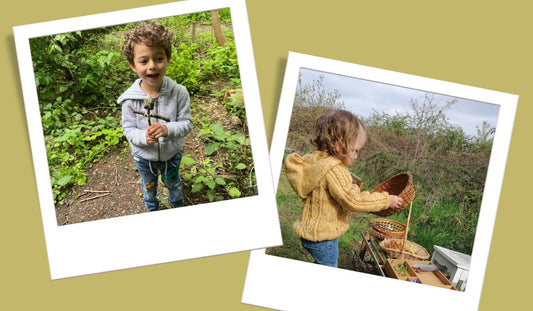
Everything you need to know about Forest School
The first Forest Schools originated in Scandinavia where outdoor living is regarded as an important part of their culture. It was introduced into the UK in 1993 when a group of early years teachers visited a school in Denmark and were so inspired by this outdoor, child-centred approach that they set up their very own school in Somerset. My own personal journey into Forest School began in 2016 when my youngest daughter started primary school. I was keen to return to work in the education sector but didn’t want to return to fulltime teaching, deciding instead to set up a toddler group in my local woodland. My training began soon afterwards. I was immediately drawn to the ethos of Forest School and was delighted to see how well children responded to being outdoors in the woods with a range of resources and activities to choose from. As an ex-teacher it...
Everything you need to know about Forest School
The first Forest Schools originated in Scandinavia where outdoor living is regarded as an important part of their culture. It was introduced into the UK in 1993 when a group...
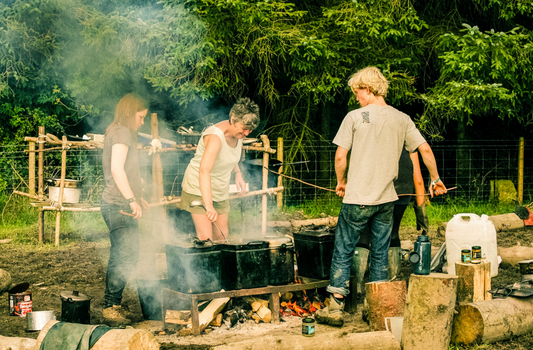
The magic of Forest School Camps
"Forest School!” calls the leader. “Caaaamps!” chime in 119 other voices. We’re in a field. Cold, wet, muddy. It’s the middle of a Welsh summer. And there’s a hurricane coming. We’re getting ready to batten down the hatches. To make sure that everything is shipshape, pegged down and ready for the coming storm. And we go at it with a will. I see a determined 4-year-old dragging a heavy spade, helping a group of camp elders to dig a new fire pit. There are 6-year-olds holding down flapping canvas, hair and voices whipped wild by the rising wind. Groups of enthusiastic teenagers sing rousing sea shanties as they stack up wood for the fire – a human chain of grinning children pulling together for the benefit of the community. And as I look around me, I’m filled with such wonder and gratitude for this: the pulling together of individuals for...
The magic of Forest School Camps
"Forest School!” calls the leader. “Caaaamps!” chime in 119 other voices. We’re in a field. Cold, wet, muddy. It’s the middle of a Welsh summer. And there’s a hurricane coming....

Naturally Talented: reframing dyslexia as an ad...
What if we could remove the stigma associated with a diagnosis of dyslexia? What if we could get people to see it as a potential advantage, rather than a setback? What if, in the process, we could vastly improve our children’s experience of their dyslexia? A diagnosis of dyslexia is too often a cause of great concern and worry for both parent and child. Why? Because it is seen as a ‘difficulty’; a ‘disadvantage’ or a ‘disability’. Even the word ‘dyslexia’ translates as ‘a difficulty with language’! It stems from the combination of two Greek words: ‘dis’ meaning ‘lack’, and ‘lexi’ meaning ‘word’. So, dyslexia means ‘to lack words’. Hardly surprising then that in a society which relies heavily on written communication, ‘lacking words’ has been seen as a definite drawback. Historically there has been very little support for those with dyslexia. It has often been misunderstood, overlooked or misdiagnosed. No...
Naturally Talented: reframing dyslexia as an advantage
What if we could remove the stigma associated with a diagnosis of dyslexia? What if we could get people to see it as a potential advantage, rather than a setback?...
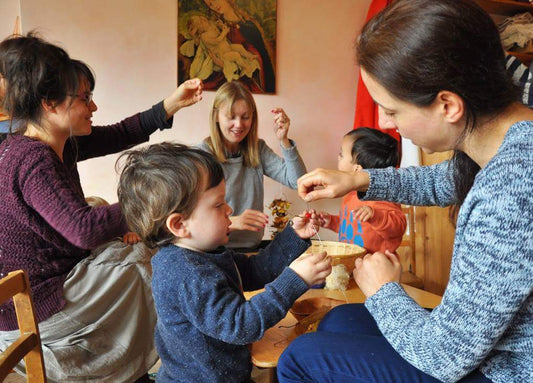
An introduction to Steiner Waldorf early childh...
Steiner Waldorf education is founded on the work of the Austrian philosopher and educator Rudolf Steiner, who wished to create a form of education that would help pupils achieve “clarity of thought, sensitivity of feeling and strength of will”. After listening to Steiner’s lectures to the workers at the Waldorf-Astoria cigarette factory in Stuttgart, Emil Molt, the director, asked him to form a school for their children, and in 1919 the first Waldorf school was founded. Today there are more than 1,000 schools and almost 2,000 kindergartens in over 65 countries, serving children from birth to 18 years of age. Steiner spoke about the developmental stages spanning 7-year periods. The phase of early childhood (the first 7 years) includes parenting, home childcare and pregnancy, baby groups – which may include the Pikler approach – parent-and-child groups (birth to age 3), playgroups, nursery groups (ages 2 to 4), and day care...
An introduction to Steiner Waldorf early childhood education
Steiner Waldorf education is founded on the work of the Austrian philosopher and educator Rudolf Steiner, who wished to create a form of education that would help pupils achieve “clarity...

Deschooling and the transition to home education
As regular readers will know, I decided upon home education very early on, dabbling in organised education only very briefly at a Steiner Kindergarten. I have never had to say goodbye to my 4-year-old at the school gates, or fight the school system on my children’s behalf, or indulge in mild skulduggery to ensure a place in the best local school. From the start I elected to home educate and did so from a philosophical and pedagogical standpoint. I am aware, though, that many home educators come to their decision after first giving school a try. Some of them will have been in two minds and have decided to try what school has to offer before committing to home education. Others will have become home educators only reluctantly: their children may have been bullied out of the system, or the school may not have been able to meet the special...
Deschooling and the transition to home education
As regular readers will know, I decided upon home education very early on, dabbling in organised education only very briefly at a Steiner Kindergarten. I have never had to say...
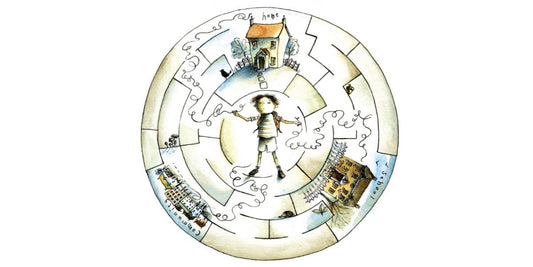
Connecting schools, communities, and beliefs fo...
I have spent seven years looking for the school of my dreams. Over the last ten years there has been a surge of small schools in the UK that aim to educate the whole child with generosity and reverence for the miracle that they are. Many of us have thought deeply about the purpose of education and have taken the courageous step of choosing or even creating a school outside the mainstream state or public system. Others are seeking fulfilment of educational ideals through home schooling their children. But I believe that a large number of these well-intentioned schools and parents are falling short of their mission because they are not connecting with their local communities or building their own altruistic community with a shared sense of purpose and beliefs about education. They are also taking some of the energy for progression away from the state system and are not...
Connecting schools, communities, and beliefs for a better education
I have spent seven years looking for the school of my dreams. Over the last ten years there has been a surge of small schools in the UK that aim...
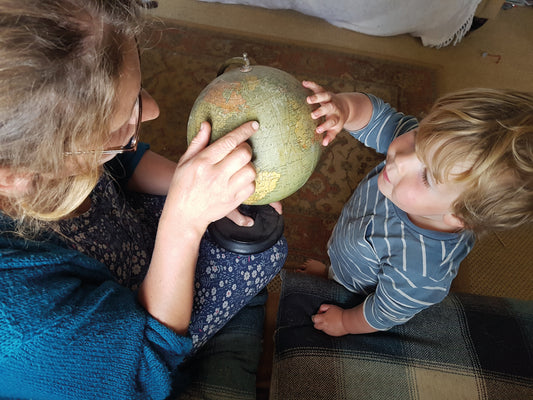
Education at home: resources and support
Anna Dusseau explains why her family chose to home-school Our family began home-educating back in 2019 and, I can assure you, this was definitely not the original plan. Home schooling happened to us, the same way it happened to most of the families I have met since, quite by surprise. Not the surprise sprung on families by school closures during the coronavirus pandemic, but rather a welcome insight into the way children really learn, and an astonishing unleashing of their true potential. As a former teacher, I was familiar with the eye-watering stats, with 64% of home-educated Reception-aged children scoring over 75% on their PIPS Baseline Assessment, compared to 5.1% of children nationally.1 But did I, in all honesty, believe what I was reading? Not really. Home-educating my own children changed that, though. Home schooling has risen in popularity by a growth of 40% from 2015-2017 and now stands at an...
Education at home: resources and support
Anna Dusseau explains why her family chose to home-school Our family began home-educating back in 2019 and, I can assure you, this was definitely not the original plan. Home schooling happened...
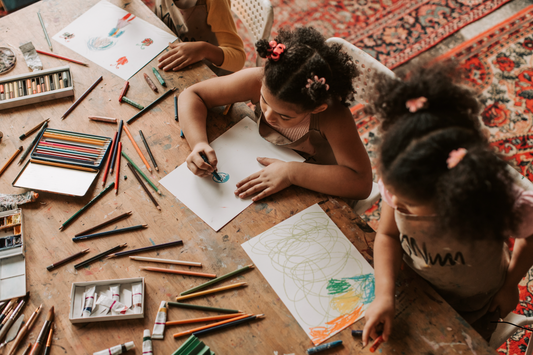
Tips for setting up a playgroup in your community
Banana Buttons Playgroup Twelve years ago, when I was a first-time mum and not the happy but slightly crumpled and biscuit-crumbs-covered mum of five I am now, we moved area. I had to work out how to care for a little baby in a new house miles from my friends. The health visitor mentioned the village children’s centre, but it was months before I plucked up the courage to go. They offered free playgroups and I soon discovered the children’s centre in the nearest town did too. For many years, I was a regular, and my children and I made lots of friends. I learned about sensory and messy play and their benefits of this in the early years. The playgroups were a place to find reassurance and to be in the company of other mums and dads going through the same highs and lows of parenting. The first time...
Tips for setting up a playgroup in your community
Banana Buttons Playgroup Twelve years ago, when I was a first-time mum and not the happy but slightly crumpled and biscuit-crumbs-covered mum of five I am now, we moved area....
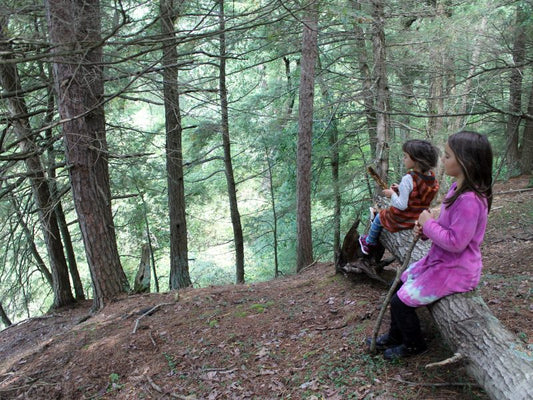
Home Ed: trust and exploration in learning
Children navigate the world with curiosity. If we trust in this innate desire to learn, we can support their education with confidence and enthusiasm. Gaining trust in children to explore and gather information about the world around them starts from infancy. They reach out to touch things, and drop them, and taste them, delighting in colour and shape, in the sound of a kind voice or a gentle rhythm. They gain the ability to crawl and toddle and speak words. As they reach school age, this desire to learn and understand continues: Why do leaves change colour in autumn? Why does rain or snow fall from the clouds? Why do we need sleep? Can I make my own clothes or learn how to blacksmith or perform hip-hop dance? If we trust ourselves to provide them with support, encouragement and resources, and we trust them to gather and test information about...
Home Ed: trust and exploration in learning
Children navigate the world with curiosity. If we trust in this innate desire to learn, we can support their education with confidence and enthusiasm. Gaining trust in children to explore...





